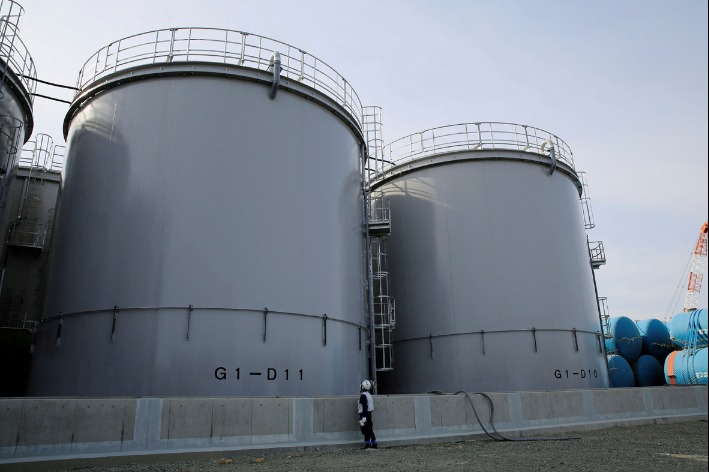Foreign Ministry calls Fukushima report 'hasty'
By MO JINGXI | chinadaily.com.cn | Updated: 2023-07-04 19:22

The Chinese Foreign Ministry on Tuesday expressed regrets over the "hasty" release of the International Atomic Energy Agency's report on Japan's disposal of nuclear-contaminated water at the Fukushima Daiichi Nuclear Power Station, which gave Japan approval on the release.
In a statement issued on the ministry's website, a spokesperson said the report failed to fully reflect views from experts that participated in the review and the conclusion was not shared by all experts.
"We believe the IAEA report should not be the 'shield' or 'green light' for Japan's discharge of nuclear-contaminated water into the ocean," the spokesperson said.
According to the ministry, due to its limited mandate, the UN nuclear agency failed to review the justification and legitimacy of Japan's ocean discharge plan, assess the long-term effectiveness of Japan's purification facility and corroborate the authenticity and accuracy of Japan's nuclear-contaminated water data.
"Therefore the conclusion is largely limited and incomplete," the spokesperson said.
The spokesperson added China has noted IAEA chief Rafael Mariano Grossi said the agency conducted the review at the request of the Japanese government and the report is neither a recommendation nor an endorsement of Japan's ocean discharge policy.
"No matter what the report says, it will not change the fact Japan will release millions of tons of nuclear-contaminated water into the Pacific Ocean in the next three decades," the spokesperson said.
The IAEA's report, the ministry alleged, failed to answer questions concerning the long-term effectiveness of Japan's purification facility and the international community's right to be informed when the discharged water exceeds the discharge limit.
"We once again urge the Japanese side to stop its ocean discharge plan and earnestly dispose of the nuclear-contaminated water in a science-based, safe and transparent manner," the spokesperson said, adding if Japan insists on going ahead, it will have to bear all the consequences.
The ministry also urged Japan to work with the IAEA to put in place a long-term international monitoring mechanism that would involve stakeholders, including neighboring countries.
























